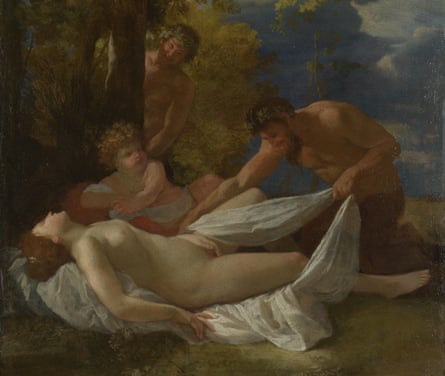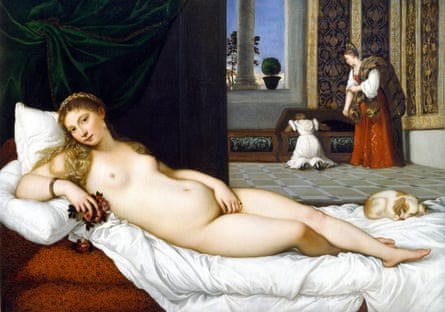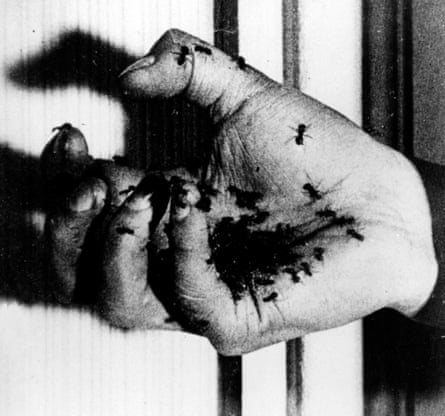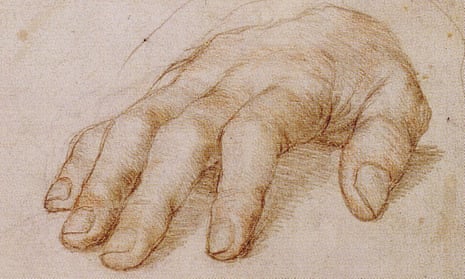Facebook’s habit of censoring great art has gone from the silly to the utterly surreal after it claimed that a drawing of a hand by Holbein breached its community standards.
The social media giant has previously been criticised for banning Gustave Courbet’s painting The Origin of the World (1866), a masterpiece of modern art that hangs for anyone to see in the popular Musée d’Orsay in Paris. Now, not content with censoring a painting studied by every art history student, it has temporarily banned a work whose offensiveness is very hard indeed to discern.

After all, Courbet’s Origin of the World is a work of genuine erotic provocation. But who can see kinkiness in a 16th-century drawing of the hand of Erasmus? Apparently there was something suspect about Holbein’s precise study (paywall) of the great Renaissance humanist’s right hand in the eyes of a Facebook regulator. The online empire has reversed its decision after art fans posted hands by artists such as Dürer and Leonardo as a protest: it blamed “human error” for the bizarre act of censorship.
It would be more reassuring if computer error were to blame, yet according to Facebook this is no algorithmic accident. An actual conscious human brain honestly thought a Renaissance drawing of a hand was obscene. Or did the curator think it was being published without proper copyright permission? That would open a huge hornet’s nest, but Holbein’s drawing is about 500 years old so fair use surely applies.

It is baffling. Still, it got me thinking. Hands can be obscene in art – of course they can. Fingers can be suggestive, saucy things. Here are some hands Facebook should watch out for.
Nicolas Poussin’s painting Nymph With Satyrs (c1627) features a hand that a nude nymph is using – as the National Gallery’s wall text helpfully explains – to give herself pleasure. She is “so absorbed in her activity”, points out the wall text, that she doesn’t notice the satyrs getting their own pleasure by watching her. The graceful fingers of Titian’s Venus of Urbino (1538) also lie suggestively placed, ready for fun.
This is a frequent scenario in Renaissance art. No wonder that when Edouard Manet gave his modern nude Olympia a pale white hand whose fingers caress her own thigh, the shocked salon audience fixated on this hand as an especially obscene detail. Perhaps Manet was thinking of Hokusai’s Shunga masterpiece The Dream of the Fisherman’s Wife when he made Olympia’s fingers look vaguely octopoid.

In surrealist art, the hand becomes even dirtier. Salvador Dalí’s 1929 painting The Lugubrious Game shows a statue of some distinguished man with a hugely enlarged hand. This guilty masturbator covers his eyes in shame, as his fantasies unfold in front of him. In the same year that he painted this, Dalí collaborated with Luis Buñuel on the film Un Chien Andalou, which features a young woman who fixates on a severed hand in the street, and another image in which a man sees his own hand covered in ants.
Perhaps the Facebook censor who made this “human error” had been watching Un Chien Andalou the night before and mistook Holbein for a surrealist. It turns out hands are not so innocent after all.










Comments (…)
Sign in or create your Guardian account to join the discussion